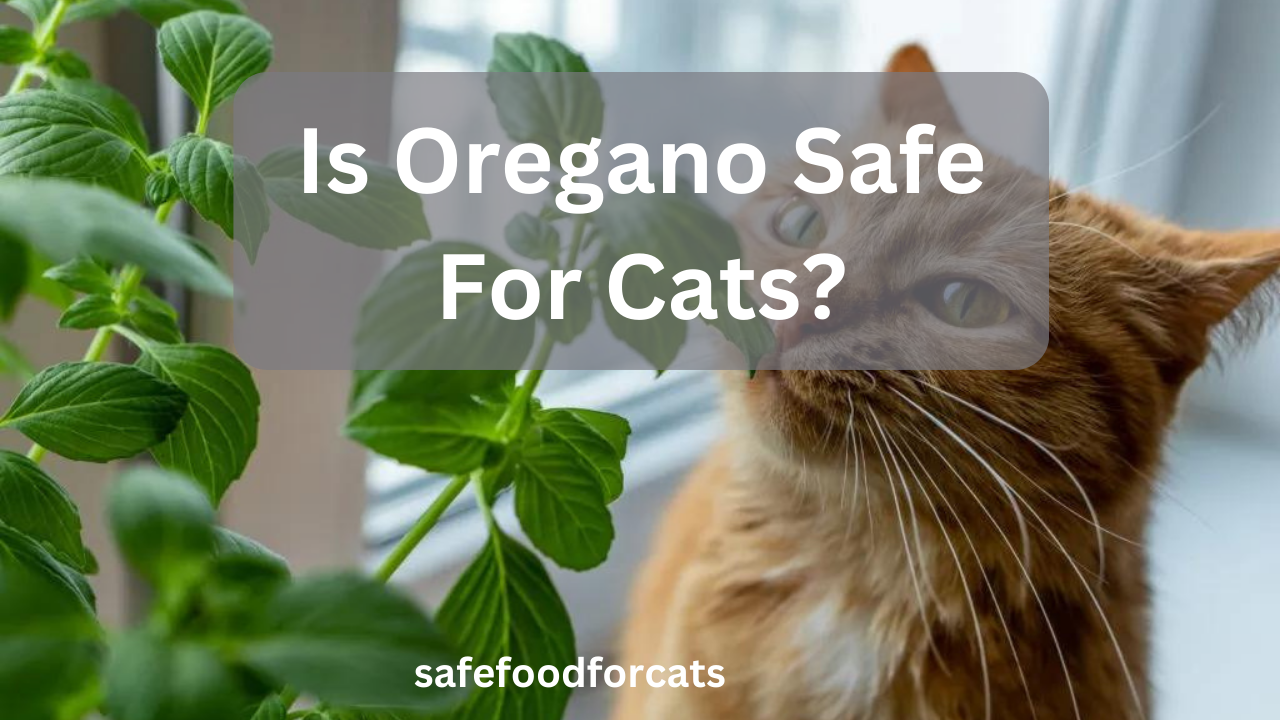Oregano is one of the more commonly used herbs in human cuisine, adding delightful flavor and aroma to dishes such as pizzas, pasta, and various culinary creations. However, while it may be a staple in our kitchens, it is essential to consider whether oregano is safe for our feline companions. Cats have distinct dietary needs and metabolic processes compared to humans, making some human foods and herbs potentially harmful to their health.
Is Oregano Harmful to Cats?
Yes, oregano can be extremely harmful and toxic to cats, especially in certain forms. While dry, fresh, or cooked oregano may cause simple tummy aches in cats, oregano in oil form, particularly essential oil, can be especially dangerous. Essential oregano oil contains high levels of substances like phenols and terpenoids, which can cause severe stomach issues and even liver problems in cats. The feline body’s enzymes are not equipped to digest these compounds, leading to adverse reactions when consumed.
Potential Dangers of Oregano for Cats
Oregano poisoning is a common concern if a cat consumes this herb. The symptoms of oregano poisoning in cats may include vomiting, nausea, stomachache, diarrhea, and general discomfort. In severe cases, oregano poisoning can become life-threatening and lead to organ failure, which could result in death.
Cat owners need to be vigilant about the plants and herbs they have in their homes, ensuring that any potentially harmful substances are kept out of reach of their feline friends. Oregano, with its distinct smell, might not be particularly appealing to cats, but accidents can happen, and it’s crucial to prioritize their safety.

Cats and Attraction to Oregano
Cats are obligate carnivores, and their dietary preferences are naturally inclined toward meat-based foods. While cats may show interest in certain herbs, such as catnip or catmint, they are generally not attracted to oregano. Oregano has a bitter and somewhat minty scent, which is unappealing to most cats. Therefore, they are less likely to be enticed by the smell of oregano compared to other herbs that resonate better with their instincts.
Safe Alternatives for Cats
While oregano is not a suitable herb for feline consumption, there are numerous safe and beneficial alternatives available that can enrich a cat’s diet and health:
- Catnip (Nepeta cataria): Catnip is a well-known herb that many cats find irresistible. It can be used as a treat or as an enrichment tool to stimulate play and exercise in cats.
- Catmint (Nepeta musings): Similar to catnip, catmint is another herb that can induce playfulness in cats and serves as a safe and enjoyable alternative.
- Parsley (Petroselinum crispum): Parsley is a herb that cats can safely consume in small amounts. It contains vitamins and antioxidants that can contribute to a cat’s overall health.
- Basil (Ocimum basilicum): Basil is generally safe for cats and can add a mild flavor to their food if used sparingly.
- Thyme (Thymus vulgaris): Thyme is considered safe for cats when used in moderation and can offer a subtle enhancement to their meals.
- Rosemary (Rosmarinus officinalis): Rosemary is safe for cats in small amounts and can provide a fragrant addition to their diet.
- Dill (Anethum graveolens): Dill is another herb that cats can safely consume in moderation, adding a unique flavor to their meals.
- Sage (Salvia officinalis): Sage, when used sparingly, can be safe for cats and provide a savory taste to their food.
- Mint (Mentha spp.): While oregano has a bitter minty scent that repels cats, mint leaves can be safe for feline consumption in small quantities.
- Chamomile (Matricaria chamomilla): Chamomile, in limited amounts, can be safe for cats and is known for its calming properties.
Conclusion
While playing with bubbles can be an enjoyable and stimulating activity for cats, it is crucial to prioritize their safety. Homemade bubbles made with harsh chemicals or toxic ingredients can pose significant risks to a cat’s health. Store-bought cat bubbles, when properly labeled as safe for feline use, are generally a better option. Always read the ingredients carefully and ensure that the bubbles are specifically designed with feline safety in mind.
To enhance your cat’s playtime experience, consider using bubbles that are specifically formulated for cats, containing fragrances, essential oils, and catnip extract to stimulate their interest. Supervise your cat’s playtime with bubbles to prevent any accidental ingestion or contact with the solution.
In conclusion, with proper precautions and consideration of the ingredients, bubbles can provide a safe and fun playtime activity for cats. As responsible pet owners, our commitment to our feline companions’ safety and well-being is paramount, ensuring they have many enjoyable and safe experiences throughout their lives. Consulting with a veterinarian regarding safe herbs and foods for cats can further enhance their well-being and happiness.
In summary, while oregano may be a popular herb in human cooking, it is not suitable for feline consumption due to its potential toxicity to cats. The presence of phenols and terpenoids in oregano can lead to significant health issues in felines, making it essential to keep this herb and its essential oil away from cats. Instead, opt for safe and beneficial alternatives like catnip, catmint, parsley, basil, and other herbs that enrich a cat’s diet and health without posing any harm. By being informed and cautious about the foods and herbs we offer our cats, we can ensure their safety and well-being, providing them with the best care possible.

